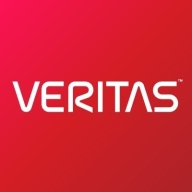Provides excellent visibility and helps reduce costs and timeWe use intuitive administrative tools that readily reveal the volume of backed-up data. Our Commvault CommCell servers alert us to failed backups and provide detailed information. This transparency allows our managed service provider to easily grasp our pre-established thresholds and readily scale up with new technologies. We're highly satisfied with Commvault's automated data security and management policies. They meet our stringent requirements for secure and private data storage, including anti-ransomware protection and encryption. Notably, they also ensure compliance with GDPR for backups stored in Europe and other regions, fulfilling our regulatory obligations. Threat Scan's ability to scan backup data for threats is invaluable because it proactively identifies and neutralizes certain viruses and threats that may originate from our G Suite or be reported by our security incident response team, preventing potential outages. Commvault provides excellent visibility across our entire organization's data. They perform regular health checks, informing us of areas of strength and offering recommendations for improvement. These recommendations may include upgrading to newer product versions or addressing issues identified during the checks. It is important for our organization that Commvault provides a unified platform for recovery across cloud, on-premises, and software-as-a-service workloads. This is particularly important because many of our existing cloud environments rely on basic backups that are insufficient for our needs. Commvault empowers us to address this issue. We have implemented it not only in our own operating company but also across the corporate structure, rolling it out to virtually all AWS users. This is because the standard backup methods, such as snapshot backups, fail to meet our stringent requirements for recovery, service level agreements, and crucial functionalities like threat detection and other security features. Commvault ensures a robust and comprehensive backup infrastructure that satisfies all our essential needs. It has improved our organization by ensuring we meet our infrastructure requirements, adhere to our vulnerability methodology, and achieve service level agreements for both backup and storage requirements. The quarterly risk analysis allows us to effectively manage the lifecycle of both data and backups. It also sheds light on the types of data and backups we have, providing valuable insights. Commvault's risk analysis is one of the tools we use to meet our compliance requirements and implement the necessary controls for immediate security policy action. To ensure comprehensive data protection and comply with international regulations like GDPR, we rely on Commvault alongside our established financial systems and SOC-compliant practices. Commvault has helped us reduce our organization's data management costs by 75 percent, particularly for long-term backups. We ditched tapes and virtual tapes thanks to Commvault, replacing them with a fully disk-based backup system and cloud backups in AWS and Azure. By implementing Commvault, we've significantly reduced our backup times. This is achieved through a combination of incremental backups and data aging. Aged data is then moved to cheaper disk or cloud storage, ensuring cost-effective long-term retention while still meeting our recovery SLAs. While the overall time savings may be around 10-15 percent, the main benefit is not keeping everything on expensive primary storage and efficiently aging it out. Consequently, retrieving data from the Azure bucket typically takes five days or more, reflecting our agreed-upon SLA. It has reduced our recovery point objective, allowing us to store more backups. However, new regulatory and compliance requirements mandate that some backups cannot be deleted and must be retained indefinitely. To address this while still improving efficiency, we've implemented solutions for long-term data storage and improved data management practices. Commvault has helped our organization not only decrease our threat detection time but also improve threat prevention to such an extent that we often avoid facing the full impact of a threat altogether. By preventing these incidents, we're often unsure of the precise amount of time saved, but the benefit is clear: we don't need to activate disaster recovery mechanisms. It has not only helped us reduce our recovery time objective, but it has also ensured that our backups and long-term storage are secure, thanks to its comprehensive capabilities. In terms of total cost of ownership, Commvault has enabled us to significantly reduce both hardware and media costs for storage and backup. After factoring in encryption and compression, the total savings amount to close to 80 percent. It has been able to reduce downtime, but having a quick recovery plan and policy and SLAs that are published are met regularly.


